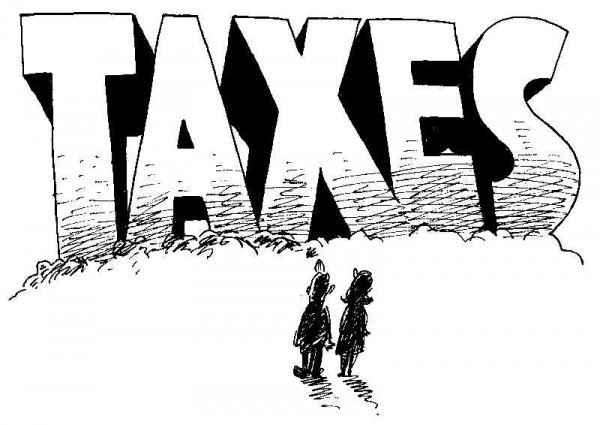Once the IRS gets your money, good luck getting it back – even if they owe it to you
03/02/2016 / By usafeaturesmedia

(BigGovernment.news) It’s no wonder the Internal Revenue Service – often mocked as the “Infernal Revenue Service” – is America’s most hated federal agency. Now, it seems, the agency has taken to confiscating wealth improperly, and then refusing to give the money back to taxpayers.
As reported by the Washington Free Beacon, the IRS has kept some $4.75 billion in overpayments by taxpayers who now are no longer able to legally claim them back, according to an audit from the Treasury Inspector General for Tax Administration.
The site noted that, when a taxpayer sends in a payment to the IRS and the agency is then unable to determine which taxpayer’s account the money is to go to, it is then applied to the unidentified remittance account. This happens most often when a taxpayer submits a payment to the IRS but is not filing a tax return.
“A rule within the IRS, known as the refund statute, puts a deadline on how long taxpayers can claim a refund on their overpayment of taxes,” says the WFB. “If the taxpayer doesn’t turn in a tax return to the IRS within that deadline, the payment is moved to the excess collection file.”
At present that file contains $5.81 billion, a 23 percent increase since January 2010; 82 percent of that money, or $4.75 billion, is overpayments that can’t be claimed by any taxpayer because the deadline has passed. The rest of the money in the account can be returned, but again, a taxpayer would have to know that their payment went to that fund and then file for a refund on time.
The audit was initiated because the fund had grown so large in the paste few years. Auditors wanted to know whether the unapplied taxpayer credits were summarily exposed to fraud and abuse and whether improper transactions had been prevented efficiently, the WFB reported.
In addition, the audit examined cases where taxpayer credits that exceeded $15,000 were taken out of the excess collection account.
The WFB noted further:
The audit found that IRS employees could inappropriately generate funds from the file due to insufficient controls within the system. In 24 cases of the 28 that were reviewed, there was no proof of taxpayer correspondence prior to a payment being made. The money reviewed in these 24 cases totaled $4 million.
“Without proper documentation, management does not have evidence to determine if the actions taken on the cases were appropriate,” states the audit. “These control weaknesses increase the risk that fraudulent or improper [excess collection file] transfers will not be prevented or detected.”
IRS rules state that money in the excess collection fund must remain there for seven years but then are required to be purged from the system, in order to reduce the chances for fraud. However, the internal audit found that overpayments had been held there for much longer than seven years and, in some cases, funds dating back to the 1960s, 70s and 80s remained in the fund.
“Weaknesses in the administration of the [excess collection file] can create an environment in which unapplied taxpayer credits are vulnerable to loss and can either overstate or understate potential Government obligations,” says the report. “These control weaknesses increase the risk of undetected fraud.”
See also:
U.S. Treasury report [PDF]
BigGovernment.news is part of the USA Features Media network of sites. For advertising opportunities, click here.




















